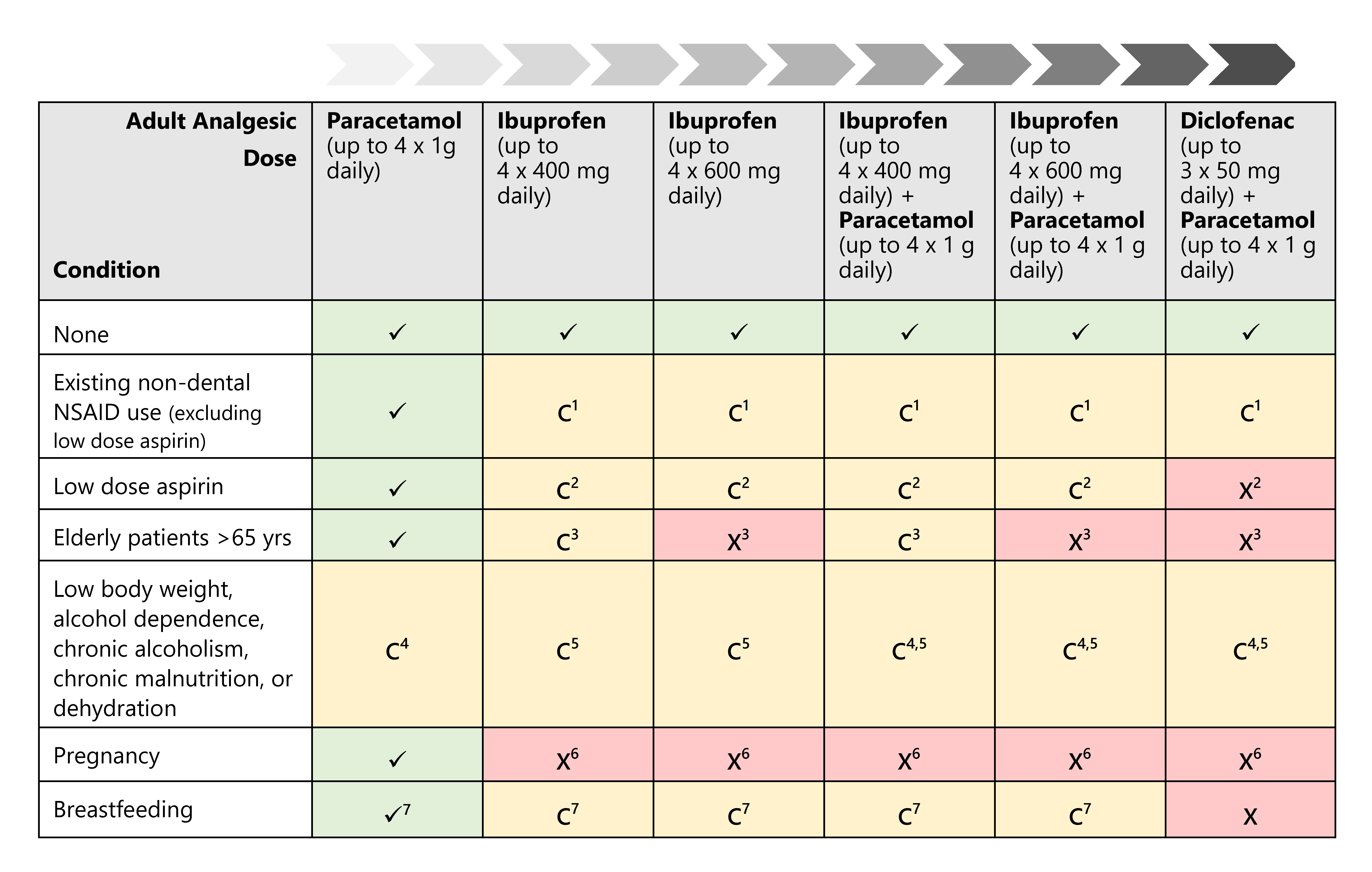Other

Notes
- Patients already taking an NSAID (prescribed or not) regularly for a non-dental condition should not take an additional NSAID to control dental pain.
- Prescribe ibuprofen with caution for patients taking low dose aspirin. Addition of an NSAID may reduce the cardioprotective benefit of low dose aspirin and increases the risk of GI bleeds.
In patients taking low dose aspirin, if an NSAID is necessary to control the pain, consider the use of ibuprofen up to 1200 mg maximum daily with a PPI or contact the patient’s GMP for advice.
Diclofenac is not recommended in this guide for patients taking low dose aspirin because some will have a condition for which diclofenac is contraindicated. - Elderly patients are at increased risk of cardiovascular, renal and serious GI adverse effects (including GI bleeding and perforation, which may be fatal).
Prescribe ibuprofen with caution. Do not exceed 1200 mg ibuprofen per day. A PPI should be co-prescribed – liaise with the patient’s GMP if a PPI is not currently prescribed.
Monitoring blood pressure, renal function, and features of heart failure may be required 1–2 weeks after starting or increasing the dose of an NSAID. Liaise with the patient’s GMP to discuss.
Diclofenac is not recommended in this guide due to increased cardiovascular risk in the elderly. - Prescribe paracetamol with caution for people who weigh under 50 kg, using clinical judgment to adjust the dose.
Prescribe paracetamol with caution if there is alcohol dependence, chronic alcoholism, chronic malnutrition or dehydration. - NSAIDs should be avoided in people with dehydration, due to risk of acute kidney injury.
For patients with chronic alcoholism and alcohol dependence the GI risk is increased with NSAIDs. Avoid NSAIDs if possible or prescribe with a PPI. - Paracetamol is the analgesic of choice during pregnancy.
As NSAIDs should be avoided in pregnant patients unless the benefits outweigh the risks, they are not recommended in this guide. If necessary, a GMP may prescribe an NSAID, using the lowest effective dose for the shortest time possible. NSAIDs must not be used from 30 weeks of pregnancy without specialist advice and regular foetal monitoring. - Paracetamol is the analgesic of choice for women who are breastfeeding. Seek expert advice if the infant is pre-term, or low birthweight. Absorption, distribution, metabolism, or excretion of paracetamol may be affected by an underlying medical condition.
Use NSAIDs with caution. If an NSAID is necessary, ibuprofen is preferred using the lowest effective dose for the shortest time possible.